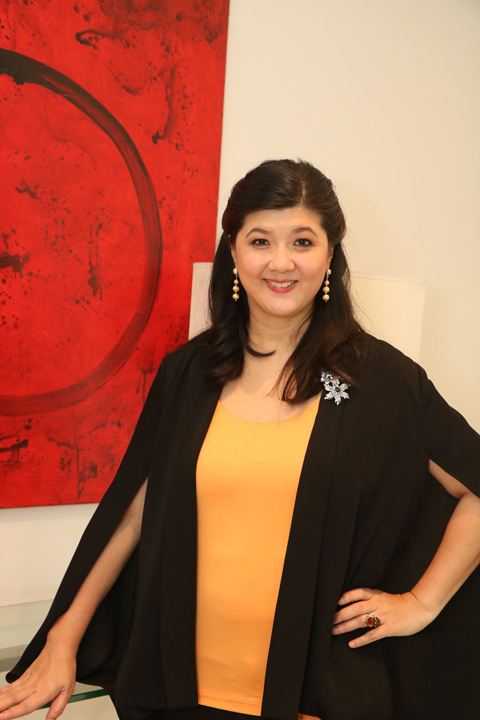The entrepreneur, designer, and former DTI Undersecretary recalls the time she first casted her ballot, in a time when our nation was still reeling from catastrophes and political jingles can change people’s minds.
This month, Lifestyle Asia is talking to several members of society of differing backgrounds about one of the most important choices they have had to make in their lives—who should govern them and the ones they love.
In these personal essays, we hope it would enlighten everyone that, while our current situation remains seemingly bleak and unconquerable, even the smallest decisions that we make can still make a difference.
Our voice matters. Our vote matters.
—
I turned 18, the age to vote, in the early 90s.
I was a young, single lady who in high school had experienced the EDSA Revolution. That brought about a huge change not only in government, but also in our new 1986 constitution and saw many attempted coups during the Cory Aquino Administration.
The president then was Corazon Aquino of PDP Laban, the Vice President was Salvador Laurel of Unido, the Senate President was Jovito Salonga, the Speaker of the House was Ramon Mitra Jr, and the Chief Justice was Marcelo Fernan.
The world’s largest volcanic eruption happened in June 1991 when Mt Pinatubo devastated crops and businesses in Luzon. Our country was then preparing for the 1992 presidential and local elections. But our economy was in stagflation because of the Pinatubo eruption as well as the floods in Leyte that brought losses of thousands of lives and displacement of millions of people.
The huge political decisions at this time were the retention or rejection of the US bases in Clark and Subic and the enactment of the new Local Government Code. In September of 1991, the Senate of the Philippines rejected the bilateral treaty with United States, which would have extended American use of Subic Bay Naval Base.
However, as Pintatubo erupted, the US troops abandoned Clark Air Base and completed their withdrawal from Subic in 1992. Of note, when I turned the age to vote, Imelda Marcos had come back to the Philippines to face the charges against her. Power outages and rolling brownouts continued from the 1990s affecting homes, offices and the whole country.

I first voted in that year. The Philippine presidential and vice-presidential elections of 1992 were held on May 11, 1992. This was the first general election held under the 1987 Constitution with an estimated 80,000 candidates who ran for 17,000 posts, from the presidency down to municipal councilors.
The new constitution limited the president to a single six-year term with no possibility of reelection. In the race for the top position of the land, retired general Fidel Ramos of Lakas–NUCD narrowly defeated People’s Reform Party candidate Miriam Defensor Santiago.
Joseph Estrada, the movie star turned Senator, won ran under the National People’s Coalition ticket and won as Vice President. Twenty-four senators were elected in 1992: the first 12 senators who garnered the highest votes would have six-year terms while the next 12 senators would have three-year terms.
The electoral mood was hopeful and festive even during the campaign period, with our TVs and radios filled with many political jingles and music. Somehow many who were undecided on whether or not to vote for particular candidates had decided to vote because they liked the jingle of the candidate.
With the bravado and hope of my youth, I knew I had to cast my ballot to have my voice heard. It was my responsibility to choose the leaders I wanted to have and whom I believe would help best move my country forward. I registered to vote and proudly voted.
I will do so again next year in 2022, less with the bravado of my youth but still with the hope that the leaders I choose will do their best to help my barangay, town, city, congressional district, my party list advocacy and national interests.
With the wisdom that aside from my vote, I need to continually speak and advocate and support so that more positive changes can happen. Government can only do so much and I have to do my part too: not just to register and vote but to take an active role in my community also, helping in areas where I can.
Banner Photo courtesy of Carissa Cruz Evangelista





